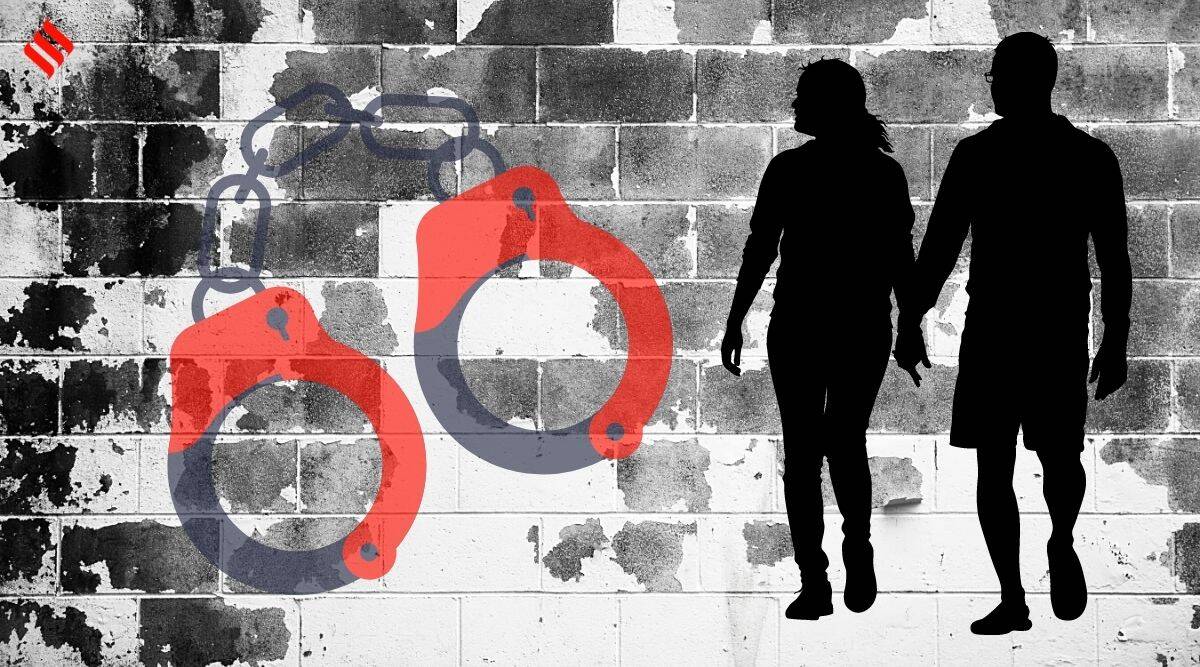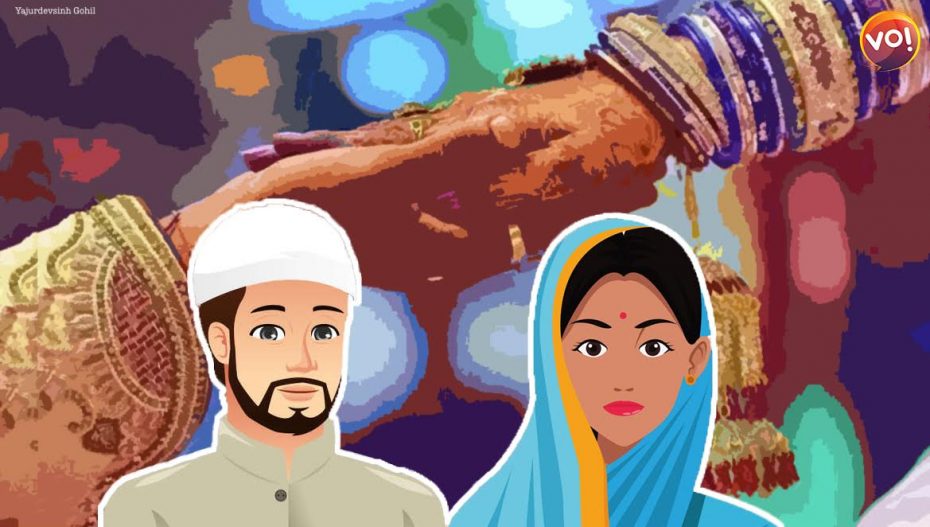Anti conversion laws were initially introduced during the British colonial period in India. After independence, various anti conversion bills were introduced but none were enacted. In 2015, the Union law ministry stated that a law against forced and fraudulent conversions cannot be enacted at the national level since the Constitution confers jurisdiction over this matter on the respective State governments.
Anti conversion laws in states are also referred to as ‘Freedom of Religion’ laws. Such laws have been enacted in many states in India. Recently, the Gujarat Freedom of Religion (Amendment) Bill was passed by the Gujarat state government in the Assembly, and it was approved by Governor Acharya Devvrat on May 22, 2021, and it came into force on June 15.

The new law penalises forcible or fraudulent religious conversions through interfaith marriages. It seeks to end conversion executed by unlawful means. If the conversion is with the consent of the individual, prior sanction is to be obtained from the state. This law was subsequently challenged before the Gujarat High Court.
Apart from Gujarat, there are eights states which have Freedom of Religion laws in the country. The main aim is to prevent any forced/ lured religious conversion. It is also argued by these states that anti conversion laws or amendments strive to fight “love jihad”, where it is claimed that Muslim men marry Hindu women only to convert them to Islam.
New provisions: Burden of proof, strict punishment
The new legislation has amended the Gujarat Freedom of Religion Act, 2003. It was challenged before the High Court and several key sections of the legislation have now been stayed by the court.
“Prima-facie, inter-faith marriages between two consenting adults by operation of the provisions of Section 3 of the 2003 Act interferes with the intricacies of marriage including the right to the choice of an individual, thereby infringing Article 21 of the Constitution Of India,” the High Court order says.
The Gujarat High Court Division Bench comprising of Chief Justice Vikram Nath and Justice Biren Vaishnav issued an interim stay on certain provisions of the amendment. The court said that the stay is to protect inter faith couples from harassment until the matter is settled in court
The law appears to end conversion through marriage. Even when it is done with the consent of an individual, there is a requirement of sanction from the state. The law has been criticised for vague and broad usage of terms. It allows the interference of family and society to oppose and police interfaith marriages. It also places the burden of proof on the partner of the converted spouse to prove that they did not coerce the converted to change religion.

The new provisions also prescribe strict punishment for forcible religious conversions through marriage. Individuals will have to face imprisonment of three to five years and also pay a fine of no less than two lakh rupees. Punishment is even severe if the forcibly converted is a minor, a woman, a Dalit or an individual from a tribal community.
The offender will have to face imprisonment from four to seven years and a fine of no less than three lakhs rupees. If an institution or organisation is involved in such conversions, the person in office and responsible for facilitating the process during that time may face imprisonment for three to ten years.
Also read: How The Provisions Of The Civil Marriage Law Are Failing Interfaith Couples
Gujarat High Court issues interim stay on provisions
Pointing that some amended sections of the law were unconstitutional, the new anti conversion law was challenged before the Gujarat High Court citing that it allows anyone to file a complaint, and criminalises inter-religious marriages. The petition highlighted that the amended law goes against the basic principles of marriage and also violates freedom of religion, as defined under Article 25 of the Constitution.
The Gujarat High Court Division Bench comprising of Chief Justice Vikram Nath and Justice Biren Vaishnav issued an interim stay on certain provisions of the amendment. The court said that the stay is to protect inter faith couples from harassment until the matter is settled in court.

The stay applies to Sections 3, 4, 4A to 4C, 5, 6 and 6A of the Gujarat Freedom of Religion (Amendment) Act, 2021. The Bench also highlighted that the law keeps a “sword hanging ” over interfaith couples, and held that conversion for marriage that does not involve fraud, force or allurement cannot be considered unlawful.
The Gujarat government’s pleader, Advocate Kamal Trivedi defended the law claiming that there is no restriction on interfaith marriages in the state, the restriction is only on the forceful conversion through marriage. He also claimed that there should be no fear regarding the law. The law is not against interfaith marriage but its use as a tool for effecting forceful conversion.
Despite, laws with such such invasive provisions continue to be enacted. Several legal experts have appreciated the decision of the Gujarat High Court in this context. They have also highlighted that the original law itself is unconstitutional and affects the liberty of citizens
As long as the conversion is genuine people need not worry. The Gujarat High Court said that a common man may read the law as a prohibition on interfaith marriages and hence, there is a need for more examination. Therefore, the court has stayed some provisions for the time being. The Gujarat High Court also said that FIRs cannot be lodged against individuals unless it is proved that the conversions were forceful or deceitful..

The Gujarat High Court’s stay is a relief to interfaith couples. The new law is an example of state intervention in people’s freedom and social mobility. Such laws are regressive and have some unconstitutional elements to them. It has earlier been made clear by the Supreme Court that an individual’s private life and believes should not be policed.
Despite, laws with such such invasive provisions continue to be enacted. Several legal experts have appreciated the decision of the Gujarat High Court in this context. They have also highlighted that the original law itself is unconstitutional and affects the liberty of citizens.
They elaborate that once a man and women are adults they can take decisions regarding their religion and the government cannot have any restrictive role in such decisions. Laws like this passed by states seem to have an agenda to stop conversion, and make sure that there is visible communal separation. State intervention in private affairs must be taken seriously and we must address the underlying motivations of such laws.
Also read: Endogamous Love: On Love Jihad & Marriages In India
Featured Image Source: The Indian Express
About the author(s)
Geeta Gunjal is a fresh graduate from Symbiosis School for Liberal Arts, Pune. She majored in International Relations. She likes to read books and binge-watch K-dramas. She is trying to learn more about Intersectional feminism




